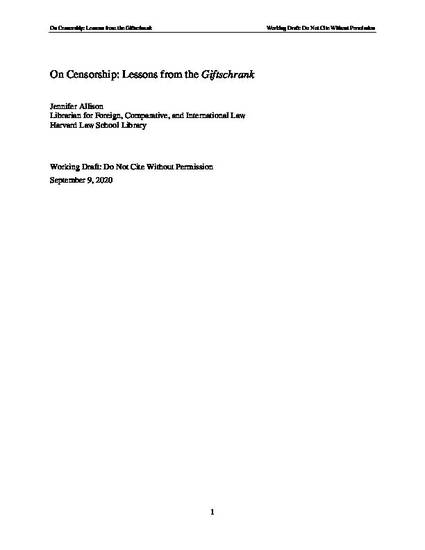
Unpublished Paper
On Censorship: Lessons from the Giftschrank
(2020)
Abstract
IN PROGRESS: DO NOT CITE WITHOUT PERMISSION.
What do we do with books that we believe people should not be allowed to read? This question has concerned those who see themselves as the keepers of the moral code in Germany for a long time, from the Catholic Church and the nineteenth-century territorial governments, to the Nazis and the government of the former East Germany. Today, of course, there are fewer morality-based restrictions on reading materials that are available to the masses. However, there are still lessons to be learned from what people in charge did with the literature they deemed inappropriate for the general populace to possess, read, and analyze. In German, various words that have been used to describe the place in a library where banned books were kept under lock and key and to which access was strictly limited. In the general vernacular, this place came to be called a Giftschrank (Gift = poison; Schrank = cupboard or closet). The use of the word “Schrank” is interesting – it suggests a place where things can really be secreted away, confined, and controlled. This was the idea.
Keywords
- censorship,
- germany,
- libraries,
- giftschrank,
- morality,
- national socialism,
- communism
Disciplines
Publication Date
Summer 2020
Comments
Unpublished working draft - do not cite without permission.
Citation Information
Jennifer Allison. "On Censorship: Lessons from the Giftschrank" (2020) Available at: http://works.bepress.com/jennifer_allison/81/
